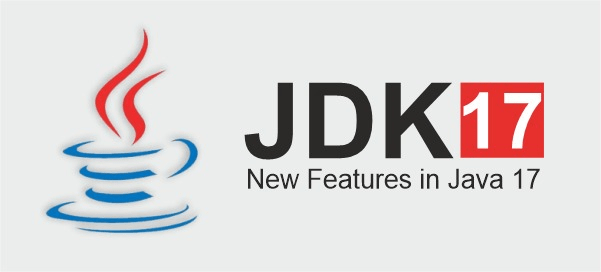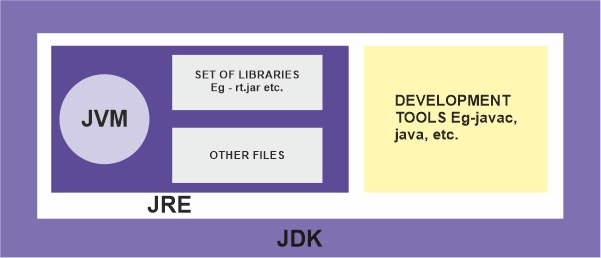What is new in Java 17?
Java 17 LTS is the most recent long-term support release for the Java SE platform. Under the Oracle No-Fee Terms and Conditions License, which stands for long-term support, JDK 17 binaries are available for free usage in production and free redistribution. September 15, 2021, saw its release.

By the time one becomes used to and interprets the working of a device, there are no repetitive thoughts and few releases. A JDK17 Open LTS version that includes development tools, libraries, a Java virtual machine, and other files is currently available. We add new features with every version, but we also have to watch out for those that are changed or removed. Before moving on to the installation process or updating it, let's talk about the evolution of open LTS versions.

Evolution of open LTS Java releases
It has been good up till now, but current releases suggest that Java is quickly rising in popularity in the IT sector. Consider when we had to wait for new Java versions, like Java 6 from 2006 to 2012, Java 7 from 2013 to 2014, and Java 8, which introduced the most well-liked notions of lambda streams and streams. In the future, we now experience frequent new Java releases, such as the launch of Java 9 in 2017, Java 10 in 2018, and Java 11 within the same year. However, Java has strong roots in the sector this time because most businesses chose it as their main language for development and demanded a certain skill set from workers.
We can sketch the structure that each it is for sure short new versions are expected to appear; thus will we get Java 12 and Java 13 in the one the year 2019? As we all know, this program code is managed, designed, and maintained by Oracle technologies, so this firm has expanded significantly. By 2020, it will be standard practice for new Java LTS releases to occur every six months, leading to the release of Java 14 and Java 15 that year. Presently, Java 16 is the most current LTS; however, due to the fast growth, a new LTS, Java17, announced on September 15, 2021, was expected to be released only shortly.
Features of java 17
Everyone is anxious for significant updates in this version to facilitate workflow. Still, developers should be unhappy because there aren't any significant version checks for major releases, as shown by the JDK improvement proposal, also known as JEPS, which is supplied below:
JEP 415: Context-Specific Deserialization Filters
Allowing applications to set context-specific and continuously selected deserialization filtering through a JVM-wide filter builder that selects a filter for each attacker can exploit the operation.
Motivation:
- Because information of incoming data streams is frequently accessed via an unrecognized or unauthenticated client, the abstraction of unknown data is an inherently dangerous process.
- The key to avoiding serialization threats is to block the deserialization of instances of any class, which prohibits the direct or indirect execution of that class's methods.
- By properly structuring the stream, a hacker can execute code from any class with malicious intent. If object building includes side effects that change state or start other activities, the security of application components, library objects, and the Java runtime may be challenged.
JEP 414: Vector API (Second Incubator)
JDK 17's vector API has been enhanced for efficiency and implementation, including menus for converting byte vectors into and out of boolean arrays.
Goals:
- Clean & concise API: The API must be able to represent a wide range of vector computations quickly.
- Platform independent: The API must be able to be implemented on a range of CPU designs that enable vector operations.
- Speed and reliability runtime compilation on x64 and AArch64 platforms
- Graceful degradation: Warnings may be sent if one cannot properly translate a vector calculation to vector commands.
JEP 412: Foreign Function & Memory API (Incubator)
This JEP proposal is a development of the Foreign-Memory Access API and the Local Compiler API, two prior developing APIs. Which has already been a subject of Java 14, 15, and 16
Goals:
The Java Native Interface is designed to replace a stronger java Program development methodology since it is more user-friendly (JNI).
Performance: Performance comparable to already available APIs like JNI or sun. Misc.
Unlikely, if not worse. Efficiency.
General: provided methods for using different external memory types, such as native memory, persistence memory, and heap memory, as well as means to adapt to future changes in platforms (such as x86 32-bit) and imported functions written in languages other than C (like C++, FORTAN).
Security: Only disable the default, unsafe actions when software developers or end users have chosen to do so.
JEP 411: Deprecate the Security Manager for Removal
A Security Manager has existed since Java 1.0. However, for many years, it was hardly ever utilized. Security Manager has been discontinued in Java 17 and will be eliminated with the outdated Applet API in a later version to improve Java (JEP 398).
Goals:
- Get developers ready for Java's upcoming release, eliminating the Security Manager.
- Send a warning if a user's Java software depends on the Security Manager.
- Examine whether creating new APIs or other techniques is necessary to address the Security Manager's special, constrained use scenarios, including blocking System::exit.
JEP 410: Remove the Experimental AOT and JIT Compiler
Maintain the experimental Servlet JVM translator api (JVMCI) even though Graal translator is used, so programmers can continue to utilize outside compiler versions for JIT processing (GraalVM).
Motivation: JDK 9 now includes a new capability called forward compilation (the jaotc tool). The Graal compiler, created in Java, is used for AOT compilation by the jaotc. Because these experimental qualities have not been applied, much work is being done to maintain and enhance them. These functions were absent from the JDK 16 builds that Oracle made available, but no one had any objections.
JEP 407: Remove RMI Activation
The remaining Remote Method Invocation (RMI) must be kept but would eliminate the Activation mechanism. The RMI Activation method is no longer needed because it is no longer necessary. It was marked as deprecated and suggested removal in JEP 385 of Java SE 15.
JEP 406: Pattern Matching for a switch (Preview)
By extending Java's pattern language, template matching for switches enables the verification of switching expressions and statements against a wide range of patterns, each of which has a distinct action. It enables the straightforward and secure expression of complicated data-oriented queries.
Instanceof has been enhanced in JDK 16 to include type patterns and pattern recognition. The common instanceof-and-cast idiom is made simpler by the small extension suggested.
Goals:
- Switching phrases and statements becomes more expressive and useful by enabling patterns to appear in case labels.
- If necessary, let the historical turning point's negligible be reduced.
- There will be the introduction of 2 additional patterns:
1. Using arbitrary boolean expressions and guarded patterns can improve template matching algorithms.
2. Parenthesized patterns: to resolve processing problems.
- Ensure all current switch phrases and sentences are compiled with the same meaning and executed without alteration.
JEP 403: Strongly Encapsulate JDK Internals
Strongly enclose all JDK internal components, except relevant ones like the sun. misc. Unsafe. As it existed from JDK 9 to JDK 16, it won't be feasible to relax the strong encapsulating of internal components with a unified command parameter.
JEP 398: Deprecate the Applet API for Removal
Because all online browser makers have either stopped supporting Java browser plug-ins or even have made plans to do so, Applet API is essentially useless. The Applet API wasn't removed sooner, even though it was banned in Java 9.
JEP 391: macOS/AArch64 Port
Port the JDK to the new macOS/AArch64 platform in anticipation of future demand.
Motivation:
- Apple's choice to switch its Laptops over to AArch64 from x64. There is already an AArch64 version of Java for Linux, but work is now being done on a Windows port.
- Software engineers want to utilize AArch64 software from all these transfers by applying conditional compilation, typical in JDK ports, due to differences in reduced standards like the programme binary interface and the set of restricted program counters.
- Pre-integration validation can reduce the risk that changes for MacOS/AArch64 will separate the present Linux/AArch64, Windows/AArch64, and MacOS/x64 versions.
JEP 306: Restore Always-Strict Floating-Point Semantics
Making floating-point procedures equally strict rather than having both strong floating-point semantics (strictfp) and drastically varying normal floating-point meanings. Adding explicit and basic floating-point modes in Java SE 1.2 will restore the languages and VMS to their previous floating-point meanings.